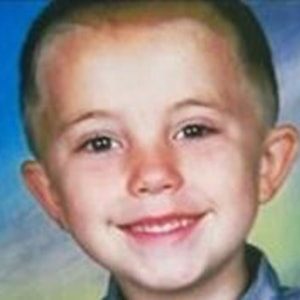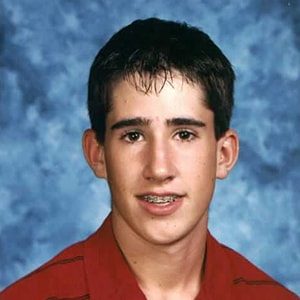citizen-times.com
A North Carolina teen was healthy and athletic. The flu killed her in days.
8-10 minutes
CANTON - On the morning of Dec. 30,
15-year-old Lacie Rian Fisher grudgingly conceded she wouldn't be able to cheer at the Pisgah High basketball game that evening.
She'd been feeling achy and hadn't had much of an appetite for the past couple days, but she had hoped to rally in time for the game. Her dad knew
she'd been exposed to the flu over the holidays, but he figured Lacie just had a garden-variety winter bug, given her only symptoms were the body ache and clammy skin.
She retreated to her room for a weekend of bed rest and apple juice.
When she hadn't improved by 9 a.m. Monday, Lacie threw on some clothes and climbed into her dad Keith's truck for the quarter-mile drive to her pediatrician. It was less than 72 hours after Lacie felt the first symptoms.
But when Lacie stepped out of the truck, "she just kind of screamed out a couple times," Fisher remembers. She crumpled to the ground, and "just went limp in my arms." Lacie would never regain consciousness.
By 4:45 p.m., Lacie Rian Fisher — athletic cheerleader, straight-A student and beloved friend — was gone.
Flu virus kills thousands each year
Every year, some 12,000-60,000 deaths in the United States are associated with the flu, according to the Centers for Disease Control and Prevention.
Overwhelmingly, flu victims fit the traditional profile of a vulnerable patient — the very young and the very old, pregnant women, people with chronic conditions or compromised immune systems.
But that can lead to a false sense of security for the young and able-bodied. People like Lacie, active and fit with no known pre-existing health conditions, are also susceptible to serious flu complications.
On her death certificate, Lacie's immediate cause of death is listed as septic shock — a severe form of sepsis — with Influenza B as an underlying cause of death.
When fighting any infection, the body releases a slurry of chemicals into the blood stream.
"Sepsis occurs when the body's response to these chemicals is out of balance, triggering changes that can damage multiple organ systems," according to the Mayo Clinic website.
Related:
"Anyone can get an infection and almost any infection can lead to sepsis," according to the Centers for Disease Control and Prevention.
Both bacteria and viruses can trigger sepsis, so everything from a urinary tract infection to respiratory infections like pneumonia can be life threatening if left untreated.
Sepsis can set in extremely quickly, and the symptoms — high heart rate, extreme pain or discomfort, shortness of breath, confusion, clammy or sweaty skin, fever, shivering or feeling very cold — are easy to mistake for milder illnesses.
"Her levels were all over the place," Lacie's mom, Rosalind Fisher Payne, said. "It was affecting her heart, her liver ... every part of her body, every organ."
Sepsis requires emergency treatment, typically in the form of an aggressive course of antibiotics and intravenous fluids.
"As sepsis worsens, blood flow to vital organs, such as your brain, heart and kidneys, becomes impaired," the Mayo Clinic's sepsis guide says. "Sepsis can also cause blood clots to form in your organs and in your arms, legs, fingers and toes — leading to varying degrees of organ failure and tissue death."
Septic shock involves a precipitous drop in blood pressure and abnormalities in circulatory systems, as well as changes to how the body uses energy and cells take up oxygen.
Septic shock is fatal to about 40% of patients, according to the CDC.
"The doctor at Mission (Hospital) ... told me that normally, the flu would not be severe enough to do this without some kind of other sickness or infection," Fisher said. "If there was something else, I just can't imagine what it was, to be honest with you."
Cautionary tale
Payne said she feels more like she lost her daughter to a car accident than to an illness.
"You do not think your child could have a cold or the flu and then be gone in just a few hours," she said. "(Her sister Kylie and I) did not get to be there with her before she passed and that absolutely kills us. You know, we didn't get to say goodbye."
Both of Lacie's parents are strong believers in flu shots, but as happens for so many families, that got lost in the fall shuffle this year.
Lacie saw her primary care provider twice in November — Fisher said he asked about a flu shot during those visits, but they decided to hold off due to a rash Lacie had on part of her body.
"I just didn't get her back to get a shot in December after she got better," Fisher said.
This year's vaccine was a "poor match" for Influenza B/Victoria, director Anthony Fauci of the National Institute of Allergy and Infectious Diseases, told CNN. "It's not an awful match, but it's not a very good match."
Preliminary CDC data indicate the vaccine is effective against 58% of Influenza B/Victoria strains — it won't prevent the other 42% entirely, but it could help stop life-threatening complications.
The 2019-2020 flu vaccine has higher match rates with other strains of the virus, and public officials say it's still far and away the best way to protect yourself — and people around you who may not even know they're vulnerable.
"I'm certainly wondering ... if it wouldn't have helped her," Fisher said. "I wished I would have gotten it for her."
"I know that there's people out there that's afraid to get the flu shot. If there's just some way that I can get people to realize because of Lacie — get that shot," Payne said. "People just don't understand how bad it is. No, it's not just a cold, or a not-feel-good for a couple of days. I mean, this happened in hours."
"It certainly seems to me there's been getting to be more and more people that just don't think you should have any type of shots," Fisher said. "I'm just kind of in shock, that people ... don't believe in immunization."
They hope to channel their grief into positive change and tell Lacie's story to urge people to get flu shots in her honor.
Remembering Lacie
"She wanted to be the best at everything," Fisher said. "She had a real drive, whether it was cheerleading or band or her grades in school."
"Lacie has always had straight A's and she has come in here more than one time in tears and (told) me that she's basically failed and just had me scared to death," he said with a laugh. "And I find out that she'd had a 97 instead of a 98."
"And she said no, I could have done better, I could have done better," he said.
Her father remembers Lacie as a "big hugger." Even walking around the house some days, "we had to have hug time four or five times before I could get where I was going," he said. "She just wanted to love on you."
The Pisgah High community has overwhelmed the family with love and support in the past several weeks, Fisher said.
"I don't know how many hundreds of calls ... and it's just been unbelievable the way they took us in and took care of us," he said.
Friends and classmates at Pisgah High wore pink — Lacie's favorite color — in her honor.
“Lacie was just the biggest ball of light that you’ve ever seen,” Morgan Hill, Lacie's cheer teammate,
told the Haywood County Mountaineer. “She was always smiling and happy to help anyone and just be a part of the team.
"If you were having a bad day, she would just go out of her way to make you happy. And she was always there to support and care about everyone. She was just one of the greatest people you’d ever meet.”
Morgan Smith, Pisgah's junior varsity cheer coach, told the Mountaineer she'd always remember Lacie's giving spirit.
“She was handing out sweatshirts to the ones that would get cold," Smith said.
"Lacie was a beautiful soul, and I am beyond thankful I was given the opportunity to coach her. Words cannot describe how much the Pisgah cheerleading program will miss her.”
"It certainly helps to have all the wonderful things people have said," Fisher told the Citizen Times. "Just sweet stories about a girl that had a smile on her face all the time and wanted everybody to be happy and do well. It's just a shame that we've lost her at such a young age.
"I knew she was a special girl but it certainly has blown me away that she was special to so many people in such a short lifetime," her dad said.
![[IMG] [IMG]](https://hips.hearstapps.com/vidthumb/7f76a1ad-4e7c-426c-9b62-e16246e7b180/7f76a1ad-4e7c-426c-9b62-e16246e7b180_image.jpg?crop=1xw:1.0xh;center,top)































































